Kumana National Park
A waste management and wildlife protection initiative led by Sen Wellness Sanctuary
Project background
Kumana National Park is a renowned bird sanctuary bordering the Yala National Park, located in the southeast corner of Sri Lanka. Drawn to the 200-hectare natural swamp lake, this sanctuary boasts regular sightings of pelicans, painted storks, spoonbills, white ibis, herons, egrets and little cormorants. In addition to its prolific birdlife, Kumana National Park is home to diverse fauna found in the larger Yala National Park including elephants and leopards. This ecologically sensitive area and its diverse flora and fauna play a crucial role in maintaining the island’s biodiversity.
Economic development and tourism, evolving lifestyles and shifting consumption patterns, however, are leading to increased waste generation and without proper regulation, the mismanagement of solid waste. Plastic, broken glass and construction debris are being disposed of along the Kumana Sanctuary and surrounding areas, with downstream effects on the environment and the region’s economic prosperity.
There is a particularly detrimental impact on the wildlife, that are attracted to the waste dumping sites in search of food. This results in them ingesting microplastics, which can cause poisoning, internal injuries and starvation. In a 2020 study by the University of Colombo, it was found that 70% of surveyed birds within Kumana had plastic debris in their stomachs. In addition, glass shards and plastic debris can cause life-threatening injuries and entanglement.
To protect and restore balance in this delicate ecosystem, Sen Wellness has partnered with Green Planet Eco Consultants to establish a sustainable waste management mechanism, educate and engage the local communities and collaborate with the local authorities and other stakeholders. This initiative aims to transform the collective mindset and behaviours, promoting responsible waste disposal practices and fostering responsible citizenship towards nature.
Our aim
- Protect the breeding, nesting and feeding grounds of the wildlife and prevent poisoning and life-threatening injuries caused by the ingestion of microplastics or entanglement in plastic and glass debris.
- Safeguard human health by reducing exposure to contaminated air and water.
- Transform the collective mindset and empower individuals to become active participants in the protection of their natural heritage.
- Restore the aesthetic value of the southeast corner of Sri Lanka and attract more tourism and recreational opportunities contributing to improved livelihoods for local communities.
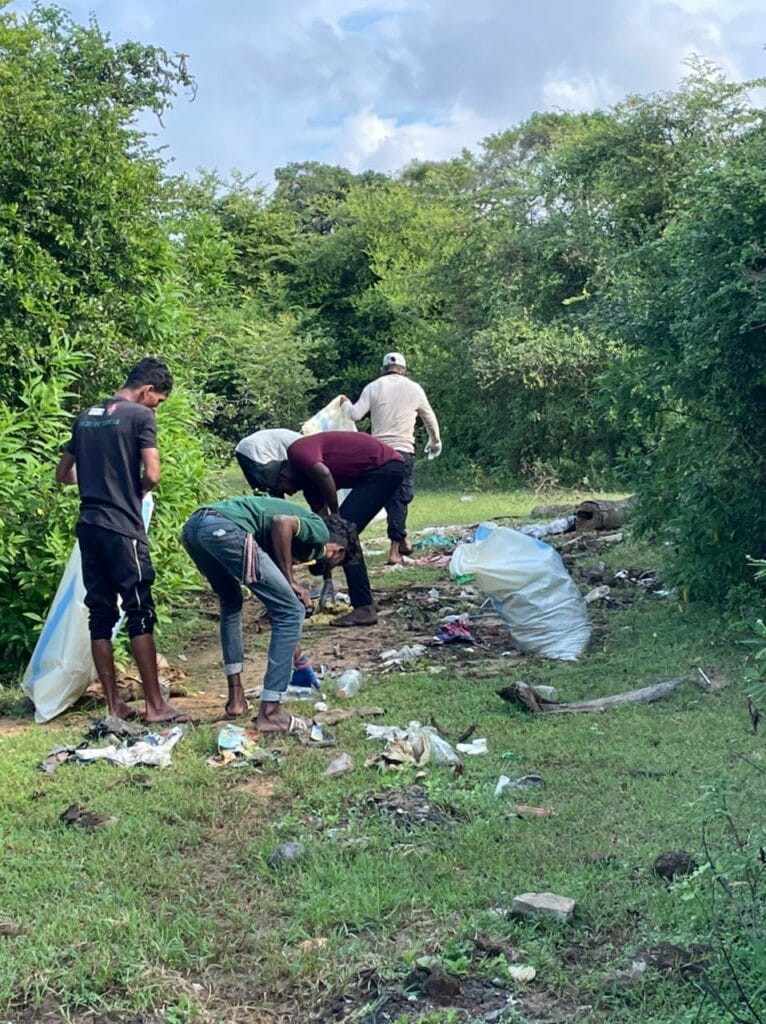
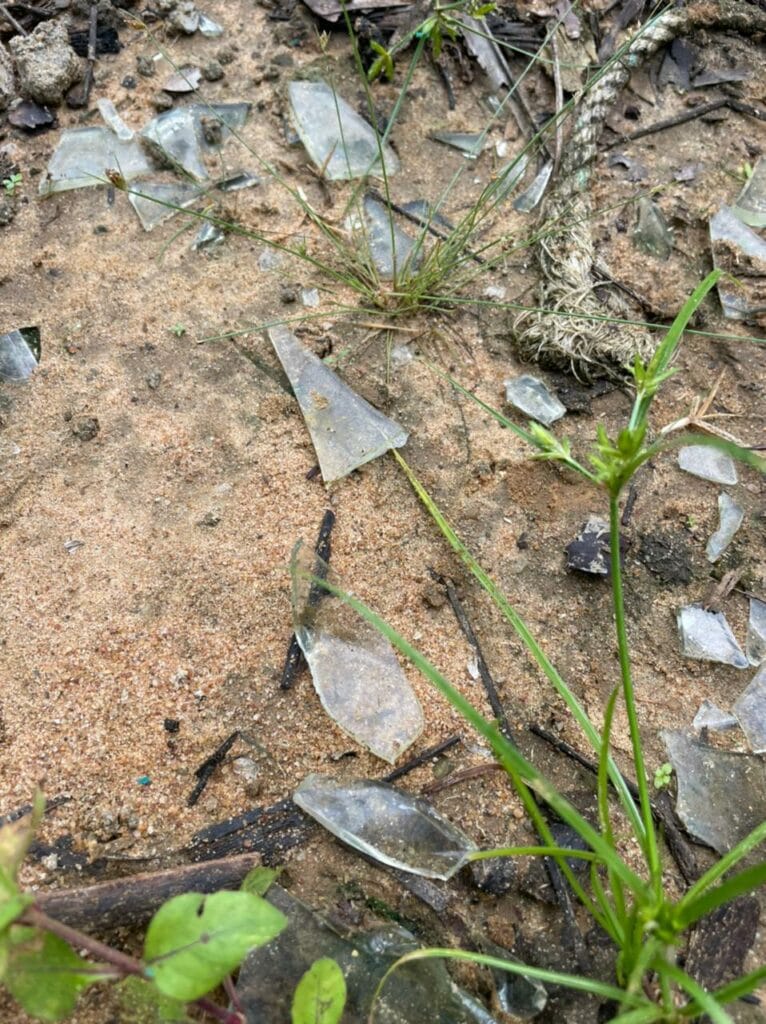

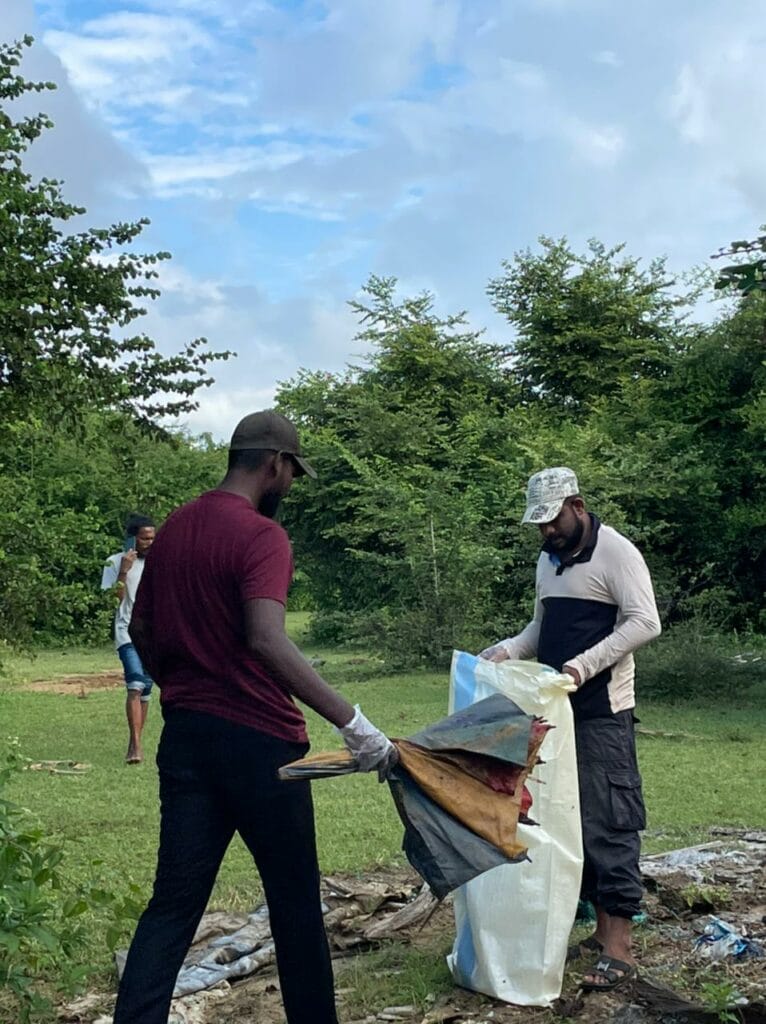
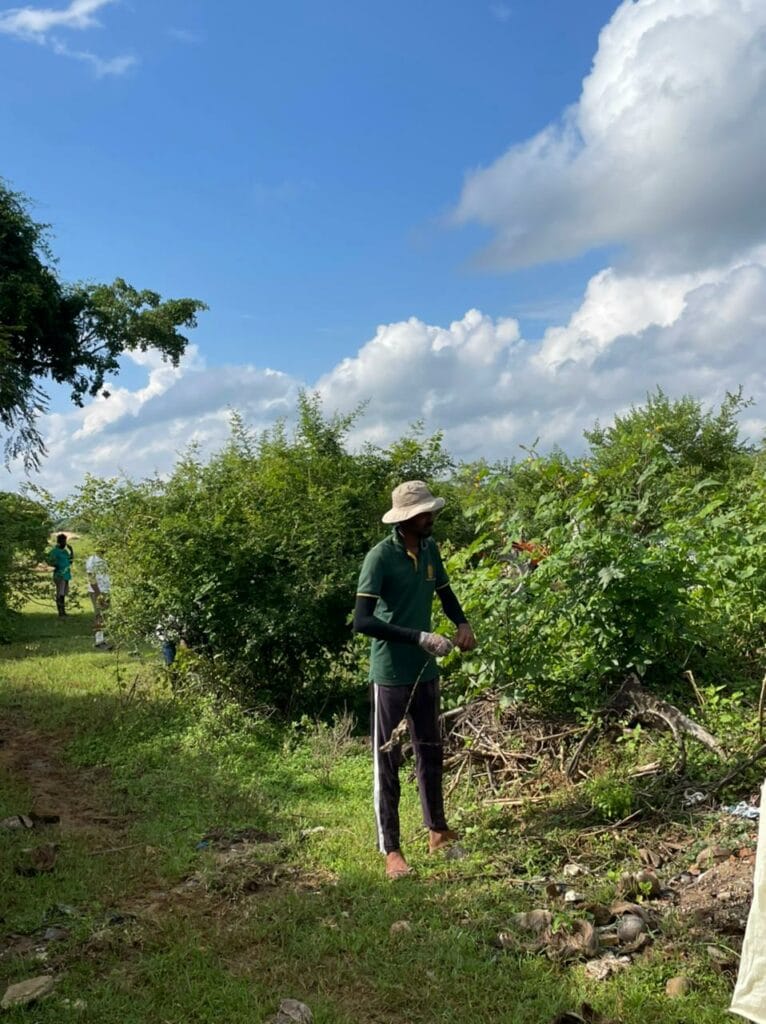
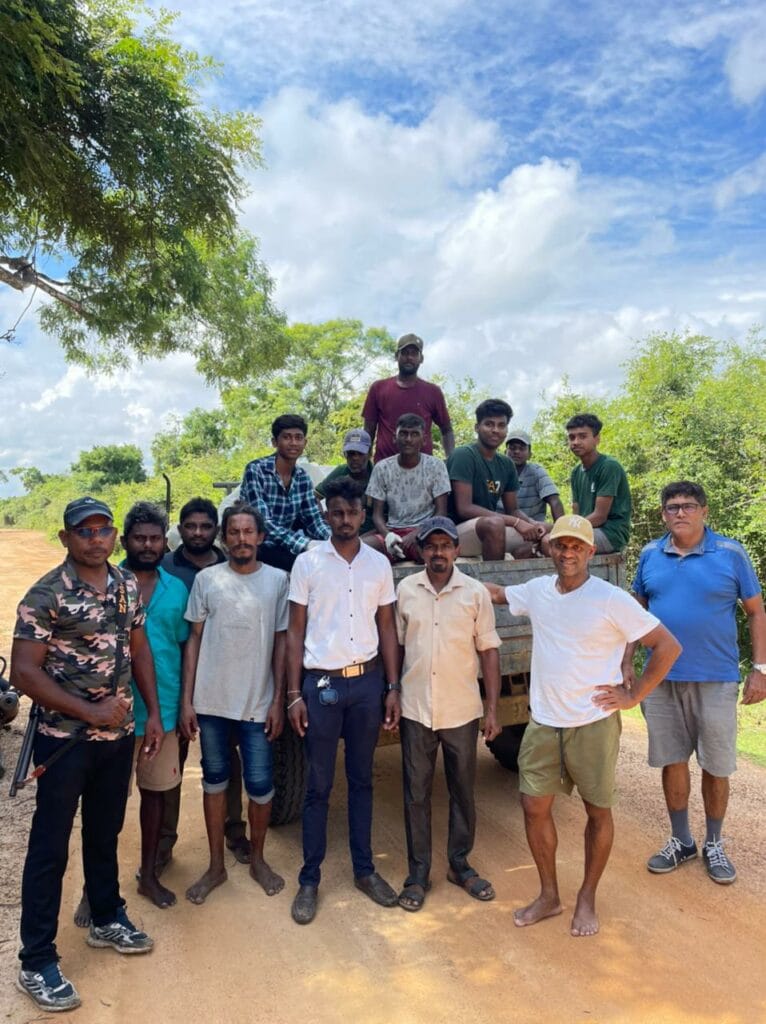
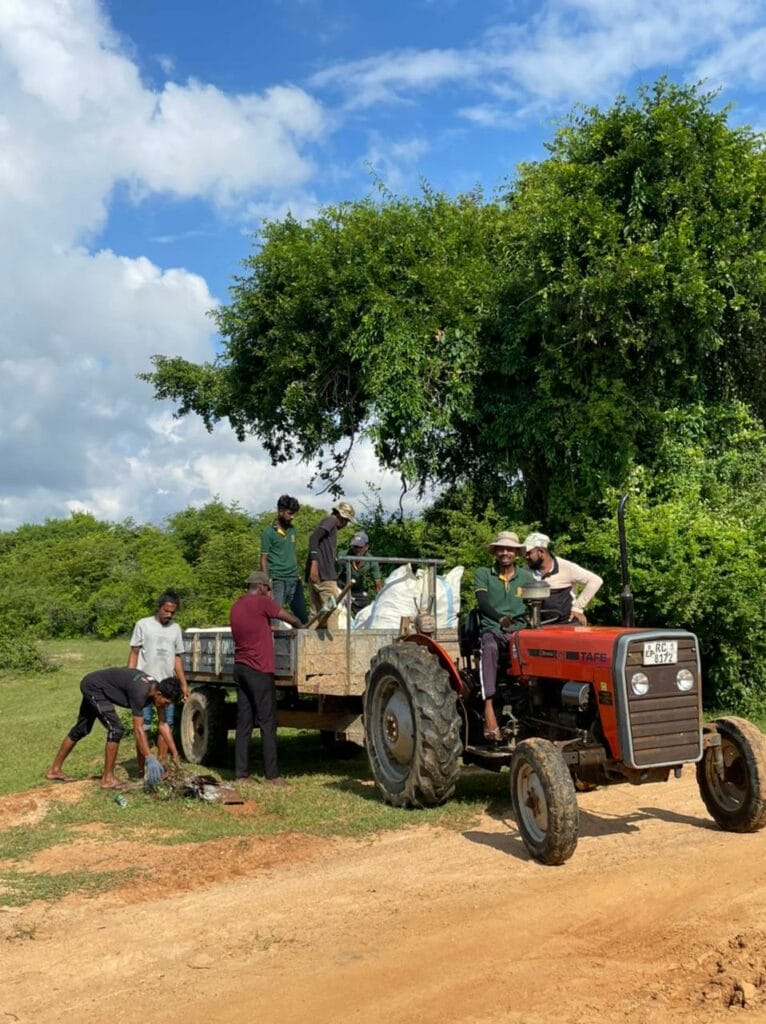
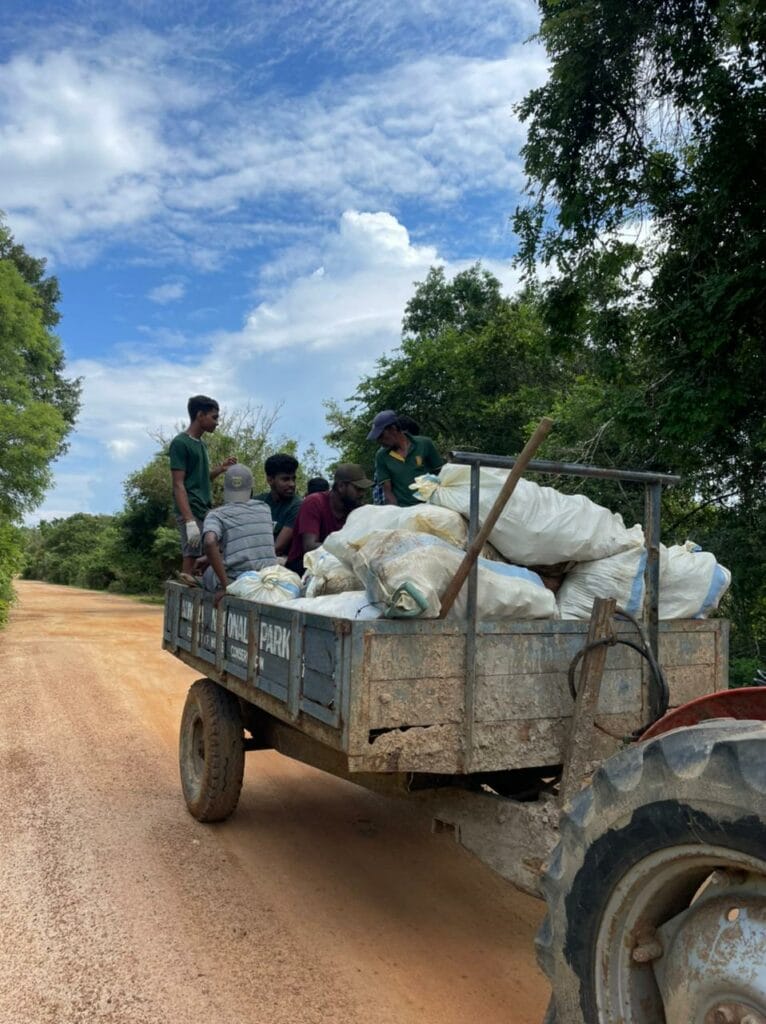
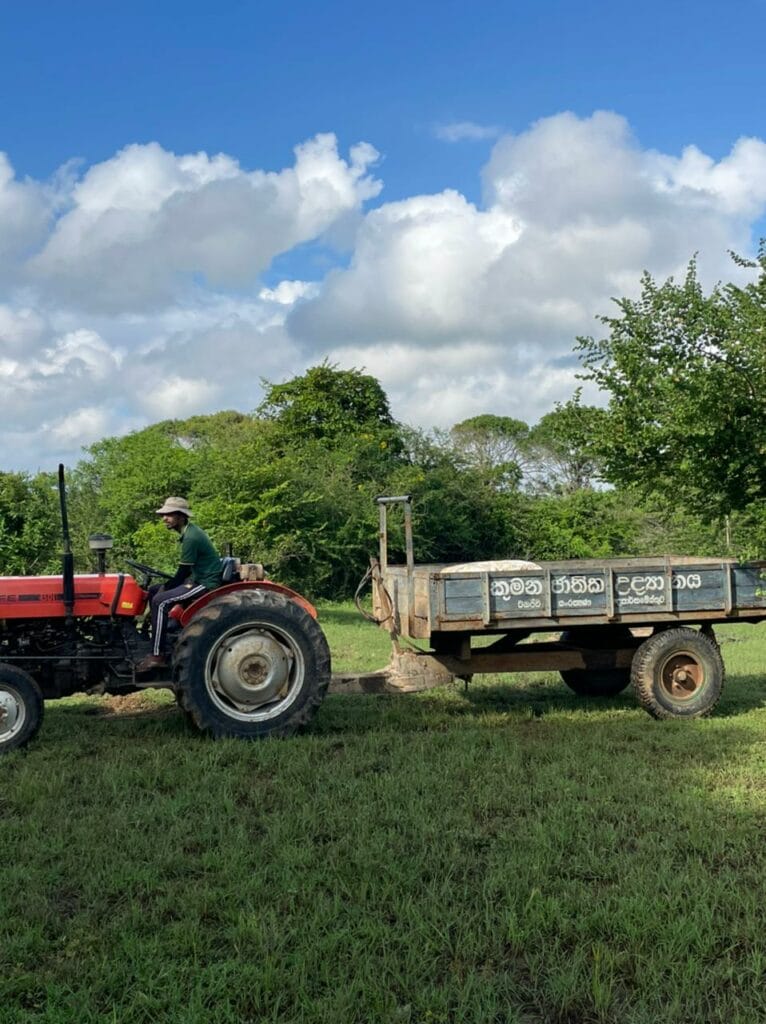


The Ministry of Environment of Sri Lanka has initiated several measures to handle waste management at the national scale, however, only 40% of waste is collected and recycled and about 60% is out of control and scattered in the open environment. In the region of interest, Pottuvil and Panama, 100% of waste is dumped into open lands as solid waste management and subsequent policy interventions are not strictly enforced or implemented in remote areas. The primary issues are insufficient financial and technical resources, inadequate waste management infrastructure and limited awareness among the local authorities and communities responsible for its proper disposal. Local agencies are overburdened, and while many international-level agencies have developed solid waste management plans for the local authority, none have been implemented due to a lack of financial support. What we require is a sustainable strategy that will have a positive impact that endures for generations to come.
Our strategy
Change the behaviour of the local community, authorities and businesses in waste management through awareness campaigns and capacity-building programmes focused on the short, medium and long-term consequences of improper waste disposal on their environment, livelihoods and health, and implementing the 3R (Reduce, Reuse and Recycle) system. We aim to empower individuals to become active participants in the protection of their natural heritage.
Empower local authorities with the knowledge, resources and technology to establish a sustainable waste management mechanism in the area that encompasses setting up local waste collection points, partnering with recycling centers and repairing existing infrastructure.
Research and use data-driven strategies to identify the root causes of the problem and inform effective interventions for eco-friendly alternatives for waste reduction, recycling and reuse.
Introduce alternative ways to reduce plastic usage and minimize waste disposal in the sensitive environment. Additionally, introduce new businesses and livelihoods in the area to make the most of waste as a raw material. This includes establishing recycling initiatives and promoting sustainable tourism.
Collaborate with local authorities, communities and other key stakeholders like community-based organizations, local partners, senior citizens and religious leaders to foster collective action. This will ensure the project’s positive impact endures for generations to come.
We are not just passive spectators, but rather active partners providing both financial and technical aid to establish and maintain a comprehensive waste management program. Our ultimate goal is to transfer the project into the capable hands of local authorities and the community, ensuring its long-term success and impact. This collaborative model will also allow us to extend the project’s scope beyond the targeted area.
Support
We invite you to support the Kumana National Park project and contribute towards the preservation of the environment and the welfare of both wildlife and local communities. When you visit our Sanctuary, you will have the option to make a financial donation to support this initiative.